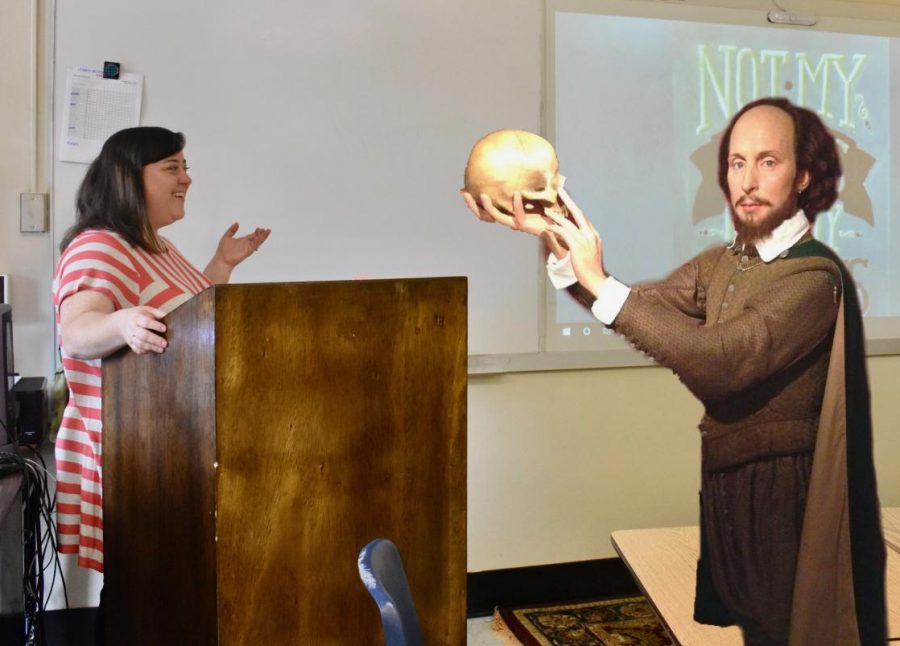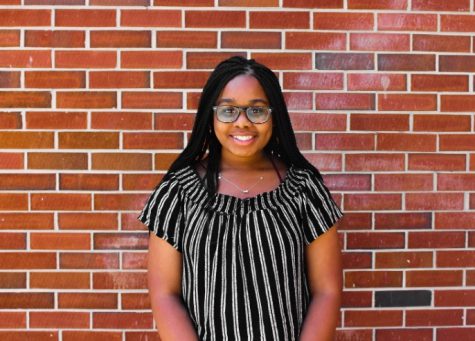Dramatic Changes at NC lead to Dramatic Writing
The new dramatic writing class offers a space for students to write freely and draft screenplays. The class’s unique way of teaching sparks skills in students not provoked in other classes. “There is an art to writing that is lost on a lot of young writers. Writing a screenplay while you are in high school, what if you can get a little fifteen-minute film made and you’re not even in college yet? That is so phenomenal and I think that there is a market in the high school age range that needs to be addressed,” Ms. Zavala said. NC continues to expand its English program with new curriculums and courses.
August 21, 2019
From teaching vulnerable freshmen for 15 years to trying her hand in a fast-paced journalism program, Ms. Rebecca Zavala continuously explores unique ways of teaching literature. This time, she expands her teaching into Dramatic Writing. NC offers its first Dramatic Writing class during the fall semester of the 2019-2020 school year.
Zavala impressively juggles three different classes and a supportive yet sometimes demanding family at once. This year, Zavala underwent a change in her environment from primarily teaching freshmen, to teaching mostly upperclassmen.
With the booming film industry making its way deeper into Atlanta, careers centered around film making become more prominent, indicating the classes’ usefulness. Zavala stays on top of her classes by planning a day in advance to compete with the fast-paced curriculum.
“I miss freshmen, I like to see the growth that happens with freshmen so it is definitely different. [In dramatic writing] it’s an opportunity as a teacher to see a kid differently than you would in a regular class. I get to see them as creators,” Zavala said.
The students in her dramatic writing class each share a love for writing on topics they enjoy. The new class features different types of learning methods where students study the texts they create.
“In dramatic writing, because it is such a new course, the students themselves are basically creating the texts that we use. The kids are generating the texts that we study and talk about and revise. It is a different story every time. There are twenty-six kids and twenty-six stories which is incredibly cool,” Zavala said.
The class presents a style of teaching that steers away from structured readings and instead, focuses on free writing. The curriculum allows students to create pieces they enjoy and learn from them. Students learn skills beyond general grammar and analysis of texts from other authors. Instead, they actively study the process of making their own content.
“I joined dramatic writing because I like to write stories and [thought] it would be a really good way to expand my skills. I like that she gives us interesting topics to write on. She focuses on actually writing and the process of editing and creating a story. So far it has really helped me with refining what I have written,” sophomore Felicity Schartok said.
The teacher’s enthusiastic attitude engages students and inspires them to learn unfamiliar content including screenwriting and plays beyond the class.
“I like the teacher the most because she is really eccentric. I love to write and I want to learn more about it. I was expecting a little less film and television, now I look forward to the film and television because I don’t know anything about it,” Magnet senior Devyn Maurer said.
Available during second period, the course gives more literary freedom to students compared to standard English classes where basic prompts constrict student creativity.
“I like that we have a lot of leeway to write. I never really had a fun class in high school and I like writing so if I took it, I’d have something I’d really enjoy. I thought it would be a lot of acting and that made me nervous, but so far it’s been writing,” Magnet senior Maddie Sullivan said.
Preparing to teach the dramatic writing class took time during the summer to create a curriculum and plan for the upcoming semester.
“I went through the curriculum and then I poured myself into reading plays and novels and doing the work myself, so I’ve written the journals and I’ve written the prompts and edited things,” Zavala said.
Zavala continues to dedicate her time to ensuring her students reach their full potential as she remains the only dramatic writing teacher for now. Her passion originates from her own affinity towards writing.
“There hasn’t been a night that I have not done something school-related after hours. I like to write, and writing keeps from having to go see a therapist. It’s sort of therapeutic because I’ll get it all out of my head and put it on the paper and then the paper can take it,” Zavala said.
In the end, Zavala hopes her students carry lessons on writing freely for pleasure into their studies as she furthers her mark at NC and expands the writing programs.
“More than anything, I really hope that students gain confidence in their own writing and that they learn that writing is not just a one-time thing. Writing is more than just putting it on paper, it’s revising and cleaning up what you’ve written. Overall I really want kids to gain confidence in their skills as writers,” Zavala said.
NC’s dramatic writing class serves as an outlet for eager students to study their works and write for pleasure. Its passionate teacher, Zavala, continues to improve the literature and writing program through her hard work and dedication.






